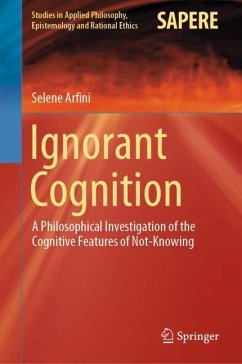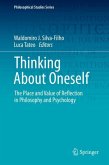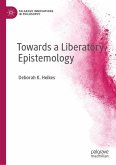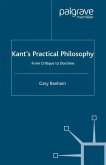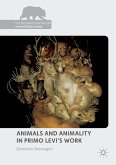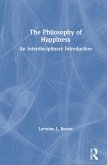This book offers a comprehensive philosophical investigation of ignorance. Using a set of cognitive tools and models, it discusses features that can describe a state of ignorance if linked to a particular type of cognition affecting the agent's social behavior, belief system, and inferential capacity. The author defines ignorance as a cognitive condition that can be either passively (and unconsciously) borne by an agent or actively nurtured by him or her, and a condition that entails epistemic limitations (which can be any lack of knowledge, belief, information or data) that affect the agent's behavior, belief system, and inferential capacity.
The author subsequently describes the ephemeral nature of ignorance, its tenacity in the development of human inferential and cognitive performance, and the possibility of sharing ignorance among human agents within the social dimension. By combining previous frameworks such as the naturalization of logic, the eco-cognitive perspective in philosophy and concepts from Peircean epistemology, and adding original ideas derived from the author's own research and reflections, the book develops a new cognitive framework to help understand the nature of ignorance and its influence on the human condition.
The author subsequently describes the ephemeral nature of ignorance, its tenacity in the development of human inferential and cognitive performance, and the possibility of sharing ignorance among human agents within the social dimension. By combining previous frameworks such as the naturalization of logic, the eco-cognitive perspective in philosophy and concepts from Peircean epistemology, and adding original ideas derived from the author's own research and reflections, the book develops a new cognitive framework to help understand the nature of ignorance and its influence on the human condition.
"Ignorant Cognition is an ambitious attempt to develop a systematic approach to ignorance, covering a wide range of topics. I believe that Arfini successfully shows that ignorance must be studied from a holistic perspective ... . The book is solidly argued, and it combines ideas from several different disciplines in an interesting way. ... it certainly worth the effort of those interested in ignorance from a cognitive, epistemological, or social perspective." (Matías Osta Velez, Studies in Philosophy and Education, Vol. 40, 2021)
"A philosophically valuable book and a welcome addition to the literature on ignorance. ... To finish a philosophy book with a whole set of new ideas to explore in my own head, is a wonderful thing. I have my own interests in the small cognitive moments where ignorance and knowledge collide, and Arfini's book has given me much to think about indeed." (Samantha Copeland, Studies in Philosophy and Education, Vol. 40, 2021)
"A philosophically valuable book and a welcome addition to the literature on ignorance. ... To finish a philosophy book with a whole set of new ideas to explore in my own head, is a wonderful thing. I have my own interests in the small cognitive moments where ignorance and knowledge collide, and Arfini's book has given me much to think about indeed." (Samantha Copeland, Studies in Philosophy and Education, Vol. 40, 2021)

